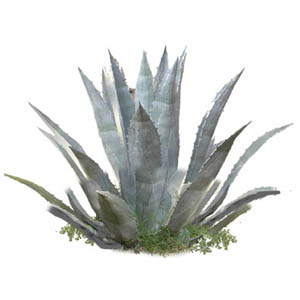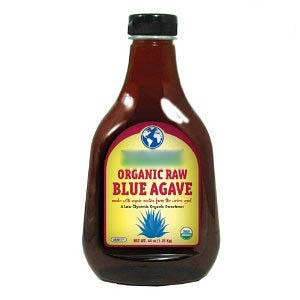 We all like to indulge with a rich, sweet dessert every now and then. And most of us know that most of the sweets we buy or order are full of refined sugars to appeal to our taste buds. But all these heavily processed sugary foods haven’t always been around. Big corporations are well aware of the addictive effect sugar has on people and take full advantage of this by creating foods that have virtually no nutritional value, but keep us reaching for more. In recent years, a variety of natural and artificial sweeteners have developed in hopes of breaking the vicious cycle of sugar consumption. Unfortunately, many of these sweeteners are released into the market with inadequate research and testing. Aspartame, for example, was introduced with hopes of providing a safe alternative for diabetics to consume without the concern of blood-sugar levels fluctuating. Even as studies began to prove the negative effects aspartame has on the human body (the brain specifically), the product still remains in many ingredient lists on the shelves in our super markets.
We all like to indulge with a rich, sweet dessert every now and then. And most of us know that most of the sweets we buy or order are full of refined sugars to appeal to our taste buds. But all these heavily processed sugary foods haven’t always been around. Big corporations are well aware of the addictive effect sugar has on people and take full advantage of this by creating foods that have virtually no nutritional value, but keep us reaching for more. In recent years, a variety of natural and artificial sweeteners have developed in hopes of breaking the vicious cycle of sugar consumption. Unfortunately, many of these sweeteners are released into the market with inadequate research and testing. Aspartame, for example, was introduced with hopes of providing a safe alternative for diabetics to consume without the concern of blood-sugar levels fluctuating. Even as studies began to prove the negative effects aspartame has on the human body (the brain specifically), the product still remains in many ingredient lists on the shelves in our super markets.
The most recent ‘miracle sweetener’ to hit the stores is agave nectar. It has exploded onto the health food scene and been praised to be an ideal natural sweetener rather than using refined sugars or high fructose corn syrup. Dieticians, doctors, and even celebrity personalities were endorsing agave for it’s health benefits.
But did we get this ball rolling prematurely once again? The short answer is YES. It is now being shown that the refining processes of agave can be somewhat compared to that of high fructose corn syrup. Rather than being derived from the agave plant sap, agave nectar is made from the starch of the plants root bulb. This particular starch is comprised of chains of fructose molecules. Once extracted, this starch undergoes genetically modified enzymatic and chemical processing which convert it to a syrup ranging from 70% fructose and up. The agave starch conversion and refining also includes the use of caustic acids, clarifiers and filtration chemicals.
Who care’s how it’s processed, though? We all should care. Like high fructose corn syrup, this sweet stuff is not metabolized and used by our bodies in the same way as naturally occurring simple sugars in fruit. Since our liver must first be involved and attempt to break it down, there are now reports suggesting it is resulting in liver disease, fatty liver, obesity, type 2 diabetes, heart disease and even cancer. Our liver converts this type of sugar into fat and stores it immediately rather than using it for energy like most complex carbohydrates.
 Before you reach for the bottle of ‘amber’ agave, consider this. Agave nectar is available in clear (light) or the darker colour (amber). The darker shade is the result of poor quality control. During its processing, the fructose will burn when exposed to heat greater than 140 degree and create a darker syrup.
Before you reach for the bottle of ‘amber’ agave, consider this. Agave nectar is available in clear (light) or the darker colour (amber). The darker shade is the result of poor quality control. During its processing, the fructose will burn when exposed to heat greater than 140 degree and create a darker syrup.
The last thing I want to emphasizes is that agave plants contain an abundance of saponins (phytochemicals which can be found in most vegetables, beans and herbs). Saponins can have exceptionally strong health benefits, including cholesterol reduction, immunity booster, bone-loss reduction and antioxidant properties. However, saponins found in many variations of agave plants are toxic (these are called sapotoxins). These sapotoxins have many dangerous and detrimental side effects, such as disrupting red blood cells, miscarriages, excessive uterine blood flow, diarrhea and vomiting. Due to the potential to stimulate blood flow to the uterus and cause miscarriages, avoid agave during pregnancy and breastfeeding.
With so many products on the market and regulations that don’t seem to be looking after the health of the consumers, what are we supposed to do? Rather than throwing your hands up in frustration, take a deep breath and a step back to think about the opportunities this is presenting to us. Never in our planets history have we been exposed to so much processed and refined foods. Perhaps this is a perfect chance for us to re-evaluate the direction we are heading. How did our ancestors satisfy their sweet cravings? There’s no need to re-invent the wheel here. We can easily incorporate organic maple syrups, raw honey and unrefined sugars into our diets when needed. These are not just natural sweeteners, but also provide us with many beneficial vitamins and minerals! What’s the point in processing foods and creating artificial sweeteners when nature provides us with everything we need? Once you get off the refined sugars, you’ll never go back!

